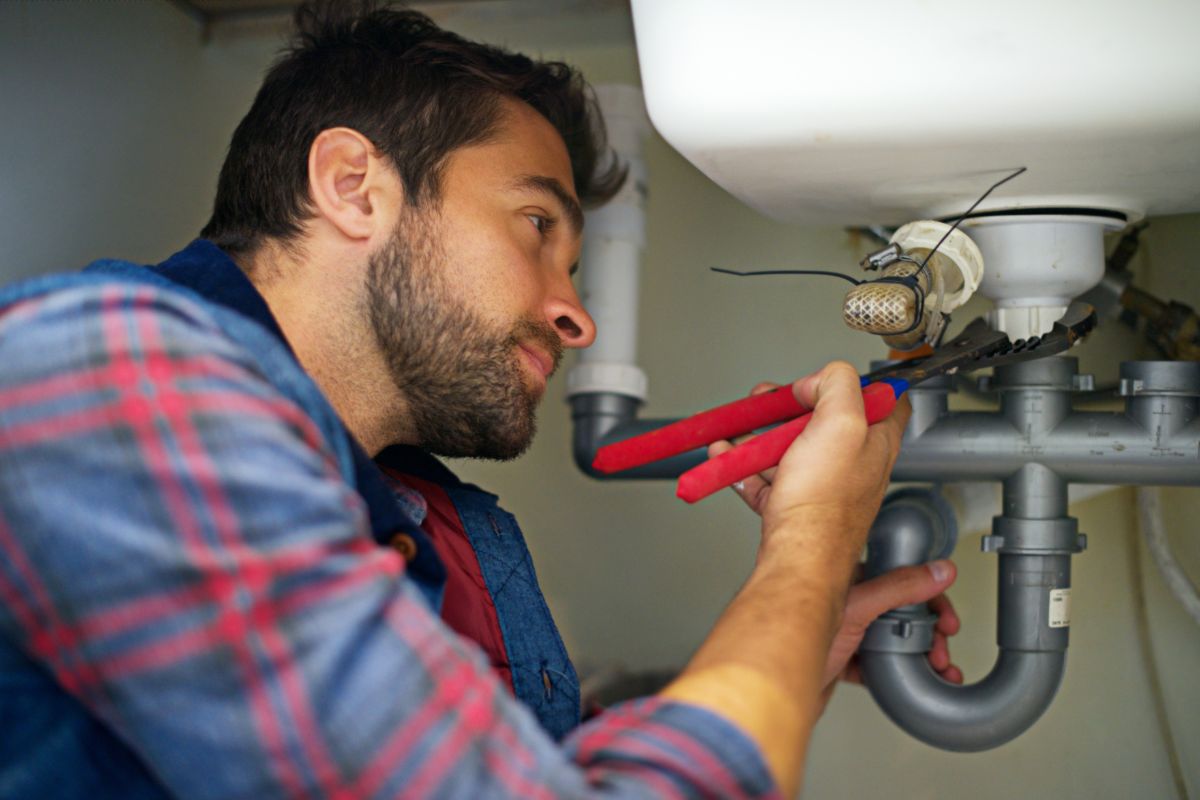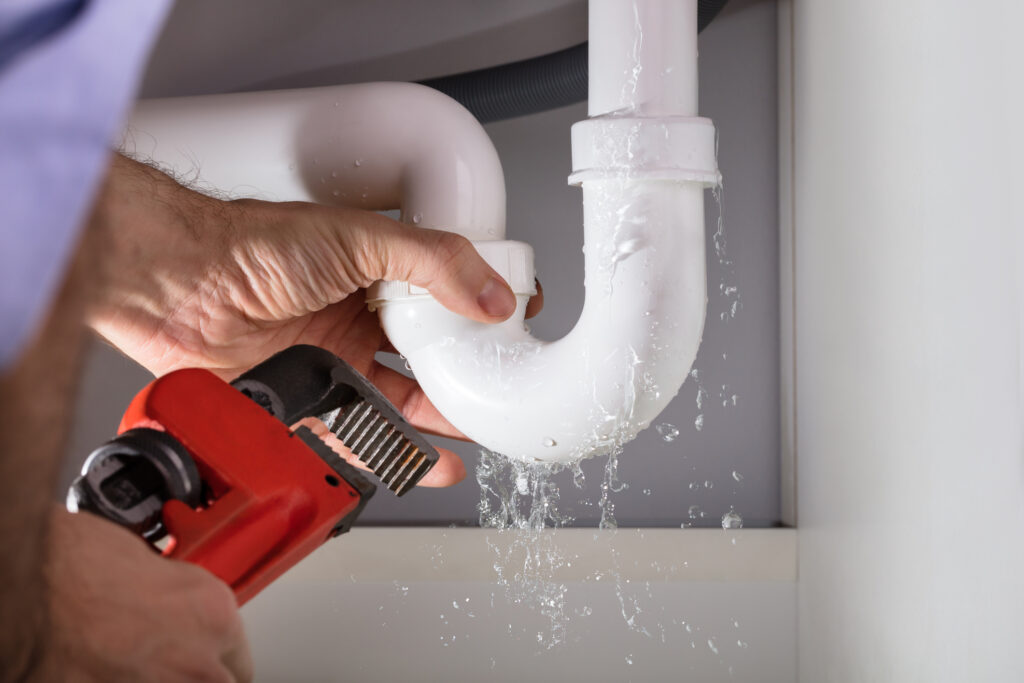Urgent Fixes: How to Until A Plumber Arrives
Urgent Fixes: How to Until A Plumber Arrives
Blog Article
What're your ideas with regards to What to Do While Waiting for an Emergency Plumber?

Pipes emergency situations can strike at any time, causing stress and potential damage to your home. Whether it's a burst pipe, a blocked drain, or a leaky tap, recognizing how to take care of the scenario till a specialist plumber gets here can conserve you from additional issues. This short article offers important emergency plumbing tips to aid you minimize damages and gain back control throughout a plumbing crisis.
Turn Off the Water Supply
The first step in any kind of pipes emergency situation is to shut off the water. For localized issues, such as a dripping faucet or toilet, switch off the valve near the component. In the case of a significant leakage or burst pipeline, locate your home's major water shut-off valve and transform it off promptly. Knowing the place of these valves in advance can conserve important time throughout an emergency.
Shut down Your Hot Water Heater
In certain emergencies, such as a ruptured pipe, it's wise to turn off your water heater. This protects against getting too hot or damage to the unit when water quits streaming. Switch off the power supply to the hot water heater (electric or gas) and allow it cool off to avoid prospective risks.
Momentarily Stop a Ruptured Pipe
A ruptured pipe can bring about considerable water damage in minutes. To alleviate the issue:
Call an expert plumber quickly to address the issue completely.
Have an Emergency Pipes Kit
Prepare a fundamental pipes emergency package to handle small concerns efficiently. Your package should include:
Having these tools handy can make a considerable distinction in your capacity to manage emergencies.
Unclog Drains Pipes Securely.
A blocked drainpipe can be an irritating and messy issue. Right here's exactly how to tackle it:.
If these approaches don't work, avoid using extreme force, as it may get worse the obstruction.
Take Care Of Overflowing Toilets.
An overruning commode can create prompt disorder. Below's what you need to do:.
Address Little Leaks with Momentary Fixes.
Tiny leaks can promptly end up being substantial problems if left uncontrolled. Use these short-lived fixes till expert aid arrives:.
While these repairs aren't long-term, they can aid reduce water loss and damages.
Handle Frozen Pipeline Very Carefully.
In colder climates, icy pipelines are a common emergency situation. If you believe a frozen pipeline:.
Know When to Call an Expert.
While quick fixes can aid momentarily, certain plumbing problems need prompt specialist interest. Call a plumbing if:.
Without delay contacting a professional guarantees the problem is settled correctly and prevents further problems.
Avoid Additional Damages.
Taking fast activity to lessen damages can conserve you money and time in the long run. Here's just how:.
Conclusion.
Plumbing emergency situations can be frustrating, however with the best knowledge and devices, you can take care of the circumstance successfully until help gets here. By shutting off the water, attending to small leakages, and making use of short-term fixes, you can decrease damages and keep your home safe. Remember, these ideas are short-term solutions; always consult a certified plumbing professional to handle the origin of the issue. Prep work and fast thinking are your ideal allies in any type of pipes emergency situation.
8 Helpful Tips for Managing Plumbing Emergencies at Home
If your plumbing system hasn’t failed once, wait for it because almost everyone has a story to tell. Sometimes, it could be simple emergencies such as a leaking pipe, a blocked cistern, or even a big burst pipe. In situations like this, you need to have some handy tips to save you some money and from possible damages.
Take care of minor issues early.
Sometimes, you could have avoided an emergency by taking proactive measures while it was still early. Some major plumbing emergencies can be a result of an ignored minor issue. We recommend that you have items like plumbing tapes and other related items. A plumbing tape can allow you to manage minor leaks before the plumber arrives.
Cut off the water supply.
This tip is essential in almost any type of leakage problem. For problems like minor leakages in the toilet or kitchen, turn off the supply that takes water to the affected pipes. If the leakage is a major pipe, you must shut off the supply valve to the entire building. This will help you avoid flooding your home and neighbors if you share a flat.
Know your plumbing system
Folks typically move into a new apartment without understanding the water supply around the building. This can prove disastrous if a water emergency arises and the plumber is far away. The previous tip will prove useless if you don’t practice this one. More importantly, know where your water shut-off valve is located – you’ll need that knowledge to prevent potential home floods.
Have some common handy tools
There are lots of plumbing emergencies that you can handle without hiring a plumber. That’s why you must keep some tools available always. Some tools that you can use to fix simple plumbing emergencies easily include plumbing tapes, screwdrivers, thread seal tapes, plungers, pliers, tape measures, and rubber gloves.
Insulate your pipes from cold
You’ll save yourself from many plumbing expenses if you protect your water pipes from the cold. This is because of the harmful effects that cold weather can have on your pipes. During winter, your pipes can burst from being overly expected to freezing temperatures. So, make sure insulators are there to keep the pipes working correctly.
Avoid practices that will clog your toilet.
Many people indulge in practices that can damage the plumbing system of the entire building. One of these is when they use their toilet to dispose-off garbage. They flush all kinds of things, such as paper towels, bandages, hairs, female sanitary products, etc., down the toilet. This will block your toilet in the long run, incurring unnecessary expenditures. Dump such waste in the trash instead.
Check your dials regularly.
Sometimes, there could be leakages in your home without noticing them in time. So, constantly monitor your water meter dial. If the dial is reading when there is nobody using water, this is an indicator that there is leaking. Check for leaks immediately. Call a plumber as soon as possible if you can’t find any.
https://www.constructionplacements.com/8-helpful-tips-for-managing-plumbing-emergencies-at-home/

Do you enjoy more info about What to Do During a Plumbing Emergency? Give a comment directly below. We would be glad to know your feelings about this blog post. In hopes that you come back again in the future. Are you aware of somebody else who is in to the niche? Take a moment to share it. Thanks a bunch for your time. Return soon.
Free Quote Report this page